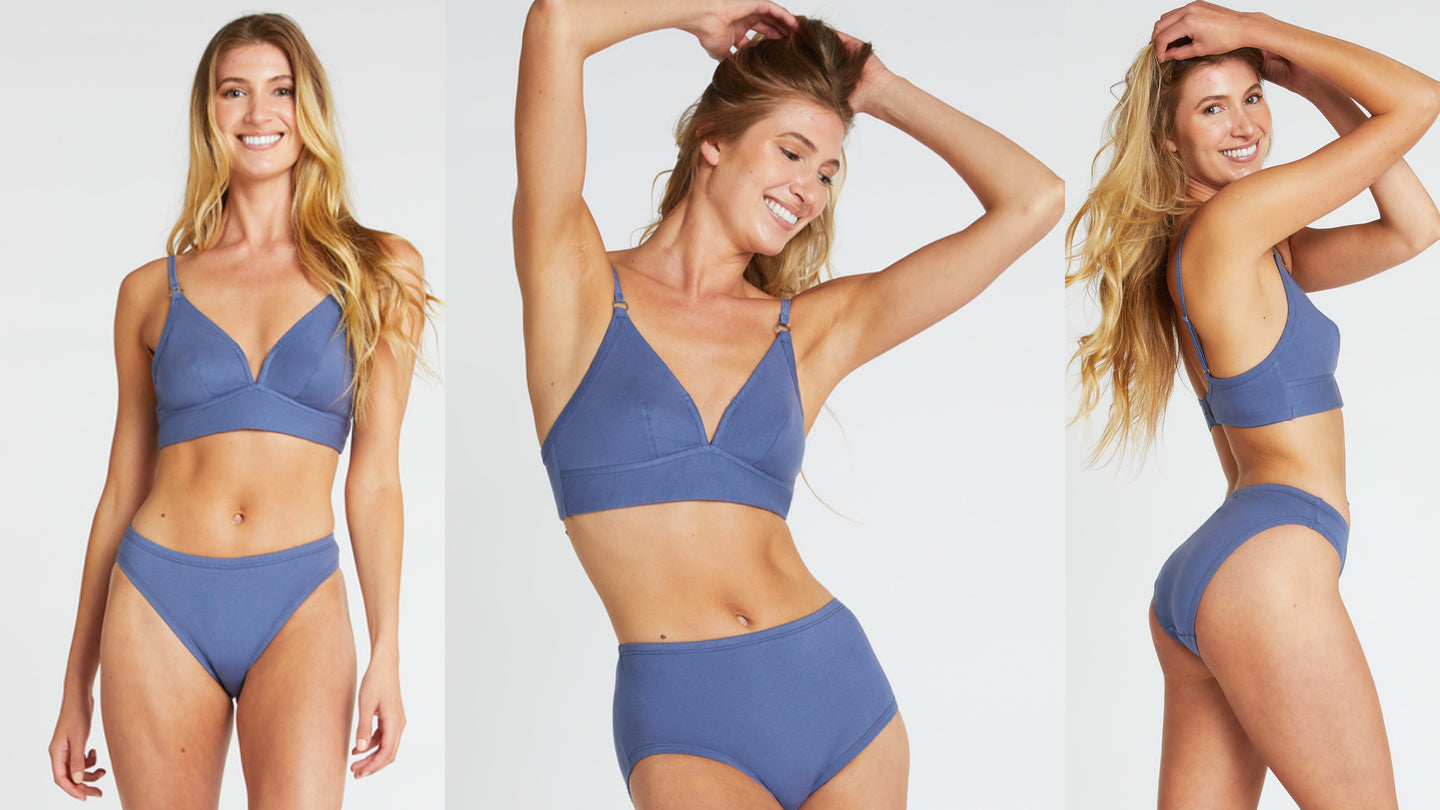In my last few weeks travelling I've seen the words 'sustainable' and 'eco' attached to just about everything! Every bra brand is for some reason claiming the words and I thought it might be helpful, particularly in Plastic-free July, as the only plastic-free bra out there, to bring some clarity to what's going on.
Although these terms are also applied to the human element - ie made in Fairtrade or local factory - I think these elements have more to do with 'ethics' and so I'm focussing on materials as they terms seem to be more relevant to materials than to labour. We work with heavily audited and certified factories, but my main focus here is materials and the damage they can do to the three main areas of our air, our oceans, and our land. In many cases these terms are being used to describe garments made with some eIement of recycled material, and I will dig into each of these a little bit deeper.
AIR
When virgin synthetics - polyester, spandex and nylon - are manufactured using petrochemicals, they release nitrous oxide into the air, a gas 300 times more toxic than carbon dioxide. When pre-or post-consumer synthetic waste materials are recycled into new lace or fabric, the toxic plastic materials are diverted from landfill, where they would otherwise end up, and they use less energy and chemicals to make them into something new. So big tick - landfill diverted, life-span of materials lengthened, and less resources than go into virgin materials manufacture. It's important to note that if your organic cotton or bamboo bra contains spandex, then it's contributing to air pollution as spandex is a plastic.
OCEANS
As you will probably know, the laundering of synthetic clothing - nylon, polyester, spandex - releases microplastics when laundered which end up in our oceans. In fact, since the 1940s, plastic has entered our fossil record as it builds itself into our underwater rock faces. Its estimated 500,000 tons of micro plastics enter our oceans this way each year, It's in the seafood we eat, and the seafood they eat. Any 'recycled' synthetic garment will continue to release micro plastics through laundering during it's lifetime, it has no less impact than virgin fibre. Having sold 10,000 bras since our launch, we were able to find a complex formula that measured that we have saved 9ks of invisibly-small micro plastics from our oceans by selling a 100% natural alternative, and we are TINY! From next year, synthetic garments sold in France will have to have a label explaining that they release micro-plastics into our oceans. No tick for recycled 'sustainable' and 'eco' bras on this score. Once again, if your organic cotton or bamboo bra contains any spandex, then it's contributing to the micro-plastics problem as spandex is a plastic.
LAND
In Australia alone we send 600,000kgs of textiles a year to landfill, 60% of which are polyester. These materials will last for over 200 years giving off methane gas. Again, any recycled 'sustainable' and 'eco' bras will end up in landfill, it's the end of the road, the materials can't be recycled twice. And as above, if your bra is 95% organic cotton or bamboo with 5% spandex, then it's also headed to landfill as there is no way to seperate spandex from any other material. It's off to landfill witht he poly bras. No tick :-(
I hope this helps clarify and inform and it applies to all clothes, not just bras and undies. Check those labels and wherever possible, buy 100% natural fibres.




